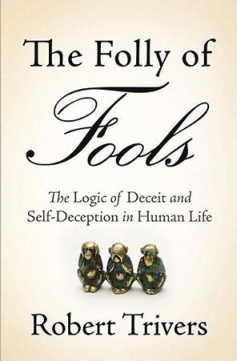- HOME
- INTRO TO THE FORUM
- USE AND MISUSE
- BADLY WRITTEN, BADLY SPOKEN
- GETTING
TO KNOW ENGLISH - PREPARING FOR ENGLISH PROFICIENCY TESTS
- GOING DEEPER INTO ENGLISH
- YOU ASKED ME THIS QUESTION
- EDUCATION AND TEACHING FORUM
- ADVICE AND DISSENT
- MY MEDIA ENGLISH WATCH
- STUDENTS' SOUNDING BOARD
- LANGUAGE HUMOR AT ITS FINEST
- THE LOUNGE
- NOTABLE WORKS BY OUR VERY OWN
- ESSAYS BY JOSE CARILLO
- Long Noun Forms Make Sentences Exasperatingly Difficult To Grasp
- Good Conversationalists Phrase Their Tag Questions With Finesse
- The Pronoun “None” Can Mean Either “Not One” Or “Not Any”
- A Rather Curious State Of Affairs In The Grammar Of “Do”-Questions
- Why I Consistently Use The Serial Comma
- Misuse Of “Lie” And “Lay” Punctures Many Writers’ Command Of English
- ABOUT JOSE CARILLO
- READINGS ABOUT LANGUAGE
- TIME OUT FROM ENGLISH GRAMMAR
- NEWS AND COMMENTARY
- BOOKSHOP
- ARCHIVES
Click here to recommend us!
TIME OUT FROM ENGLISH GRAMMAR
This section features wide-ranging, thought-provoking articles in English on any subject under the sun. Its objective is to present new, mind-changing ideas as well as to show to serious students of English how the various tools of the language can be felicitously harnessed to report a momentous or life-changing finding or event, to espouse or oppose an idea, or to express a deeply felt view about the world around us.
The outstanding English-language expositions to be featured here will mostly be presented through links to the websites that carry them. To put a particular work in better context, links to critiques, biographical sketches, and various other material about the author and his or her works will usually be also provided.
Anatomy, consequences, social costs of deceit and self-deception
As can be seen in the ongoing impeachment trial of Chief Justice Renato C. Corona by the Philippine Senate, self-deception and deliberate acts of deception can advance both personal and political agendas in such a big way. But in a new book, The Folly of Fools: The Logic of Deceit and Self-Deception in Human Life (Basic Books, 416 pages), noted American biological theorist Robert Trivers argues that this inherent human instinct to fool ourselves so we can better fool others has the heavy social cost of alienating us from reality and leading us to disaster.

In a bold, ambitious investigation into the evolutionary logic of lying and the costs of leaving it unchecked, Trivers says that people have a pronounced tendency to engage in “confirmation bias,” seizing on facts that bolster their preconceptions and overlooking contradictory data. And he explains that the more people believe their own lies, the more effectively they can lie to others. “We hide reality from our conscious minds the better to hide it from onlookers,” he says. But then, Trivers points out, our illusions can have devastating consequences, from the dissolution of a marriage to stock-market collapses and world wars.
Richard Dawkins, emeritus Professor of the Public Understanding of Science at the University of Oxford, and author of The Selfish Gene and The Greatest Show on Earth, strongly recommends The Folly of Fools: “This is a remarkable book by a uniquely brilliant scientist. Robert Trivers has a track record of producing highly original ideas, which have gone on to stimulate much research. His Darwinian theory of self-deception is arguably his most provocative and interesting idea so far. The book is enlivened by Trivers’ candid personal style, and is a pleasure to read.”
Read John Horgan’s “Why We Lie,” a review of this book, in The New York Times now!
ABOUT THE AUTHOR:
Robert L. Trivers, an American evolutionary biologist and sociobiologist, is currently professor of anthropology and biological sciences at Rutgers University. He won the Crafoord Prize in Biosciences in 2007 for his fundamental analysis of social evolution, conflict, and cooperation. A graduate of Phillips Academy, Andover, he did graduate work at Harvard with focus on evolutionary theory and earned his PhD in biology from the university in 1972.






